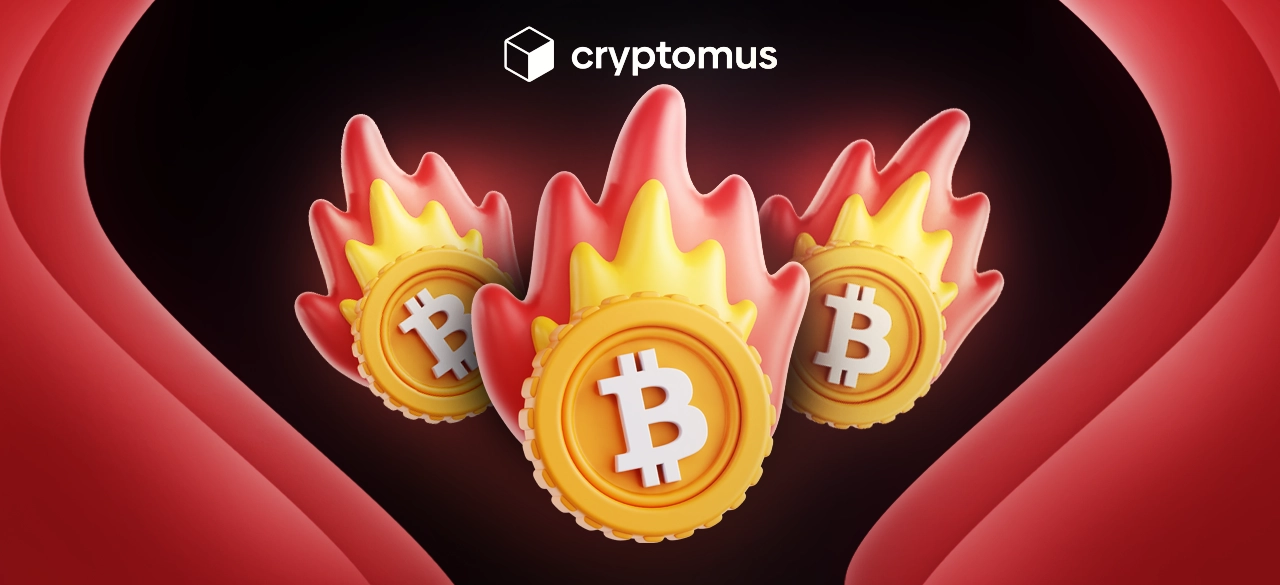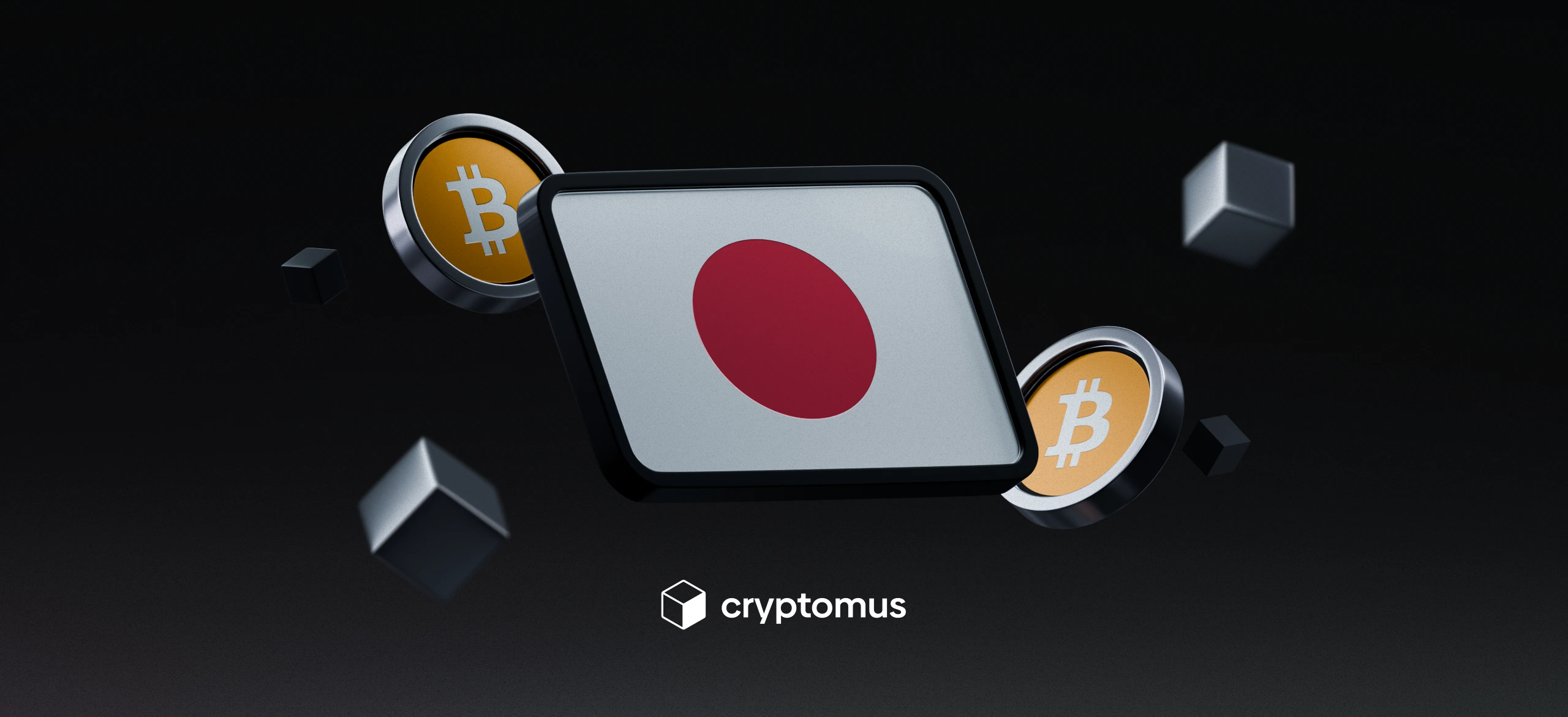
How to Buy Crypto in Japan?
Table of Contents
Cryptospace is still a young and actively developing sector. That's why in many jurisdictions, the legal clarity for digital finance remains shady and complicated. Today, we'll research every important thing about crypto in Japan and answer the most popular questions. Let's begin!
Is It Legal to Buy Crypto in Japan?
Yes, it’s legal to buy crypto in Japan. The government doesn’t prohibit owning or buying such assets but strictly controls the exchanges. The main regulator is the Financial Services Agency (FSA) — it issues licenses to companies that want to work with crypto and ensures that they comply with the rules for protecting users, integrating AML policies, and terrorist financing. To be considered legal, an exchange in Japan must be registered with the FSA as an operator for the exchange of crypto-assets.
Another supervising authority is the Japan Virtual and Crypto Assets Exchange Association (JVCEA), a self-regulatory organization created with the support of the state. It develops detailed rules for the industry: which coins can be listed, how to conduct advertising, and what security standards to apply.
So, ordinary users are allowed to buy and store crypto if they do so through such licensed exchanges. Using foreign crypto exchanges is also allowed, they stand in an unregulated area but it doesn't mean they are worse or more dangerous to use. Actually, they do have their advantages of which we'll talk in the next chapter.
Also, crypto is in fact taxable in Japan. Later in the article we'll discuss all the important details of it, so stay tuned.
Ways to Buy Crypto in Japan
There are several ways to buy crypto in Japan, each with its own advantages and disadvantages. Let’s take a look at the main options.
Centralized Exchanges (CEXs)
A centralized exchange is an online platform that simplifies entry into cryptocurrency for beginners thanks to its advanced training system. Nowadays, CEX is one of the most popular ways to buy crypto, as these platforms offer all the tools needed to work with crypto, including trading, staking, withdrawals to bank account, cryptocurrency conversion and transfers.
Examples: BitBank, bitFlyer, Cryptomus.
-
Pros: user-friendly interface, various cryptocurrencies, strong security measures.
-
Cons: KYC always required.
Remember: foreign exchanges are different from local Japanese ones. They have a larger choice of coins and more trading tools, but at the same time they are not FSA-regulated, and can limit service to Japanese users.
P2P (Peer-to-Peer) Platforms
P2P marketplaces let users buy crypto directly from each other, setting their own rates and choosing the most convenient payment methods.
Examples: Cryptomus P2P, Binance P2P, OKX P2P.
-
Pros: flexible payment methods (bank transfers, payment services), low fees.
-
Cons: fraud risk, takes time to find a suitable offer.
Online Exchangers
These are instant crypto swap sites that allow quick purchase of crypto with a debit/credit card or e-money service.
Examples: Changelly, Paybis, SimpleSwap.
-
Pros: fast and convenient, multiple payment options (by card, mobile money, or bank transfer), foreign cards availability.
-
Cons: high fees and spreads, restrictions on transaction amounts.
Crypto ATMs
Those are machines that work just like regular ATMs, but instead of working with cash, they let you purchase crypto. Osaka-based company Gaia has a service allowing users to purchase Bitcoin with Japanese yen through its automated exchange machines in Tokyo and Osaka. Previously, the machines only supported selling crypto, but now users can also buy BTC after registering and linking a wallet. The purchase limit is 100,000 yen per transaction, with a 10% fee.
-
Pros: a quick method, direct cash deposit when buying and withdrawal (when selling crypto).
-
Cons: high fees, availability limited to big cities, identity verification is often required.
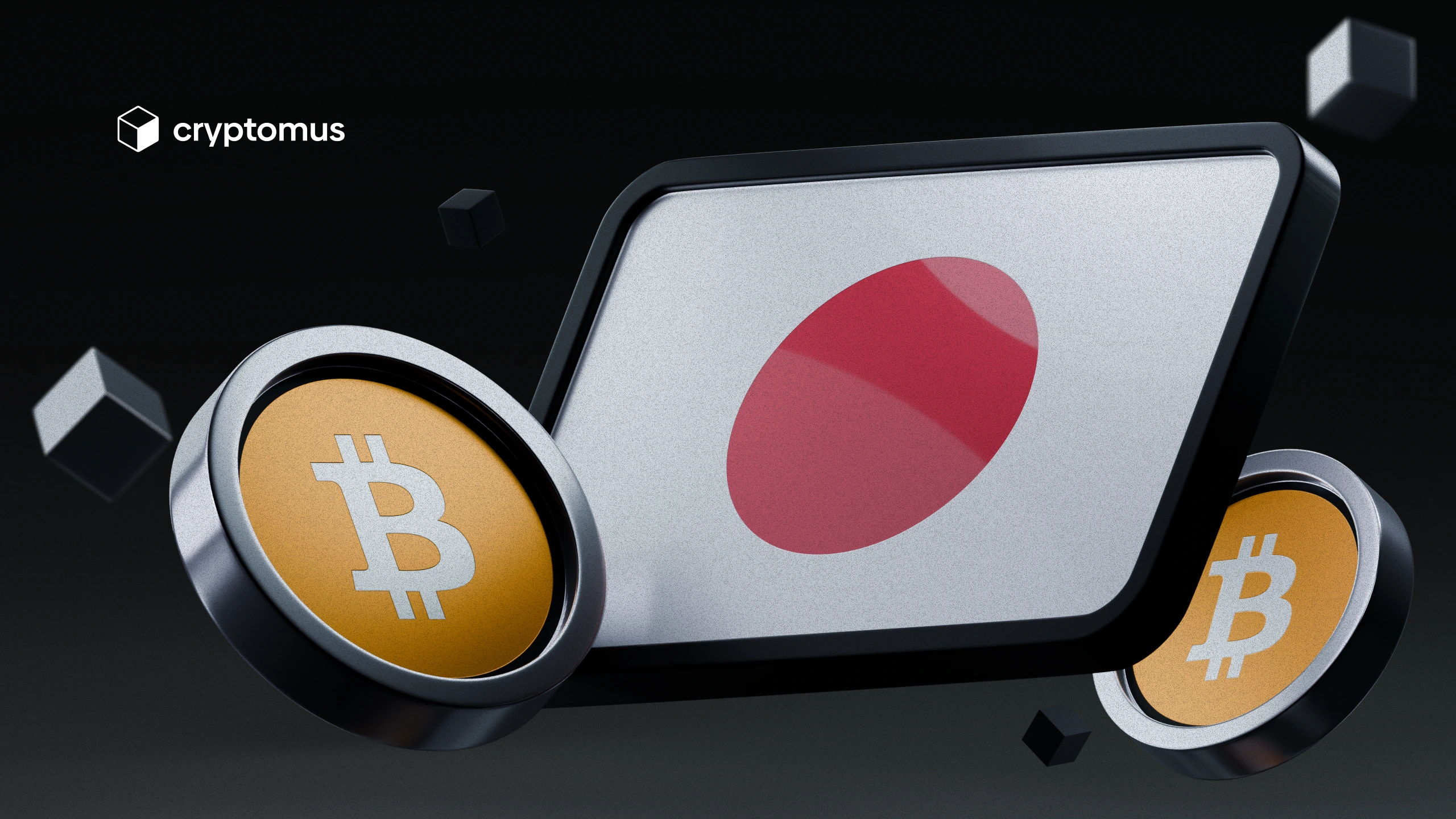
Step-By-Step Guide on Buying Crypto in Japan
The most convenient and common way to buy crypto out of all the ones we've mentioned is through centralized exchanges. This is the method we'll cover in our guide.
So, to buy cryptocurrency in Japan through CEX, you need to:
-
Choose a CEX that works with yen.
-
Register an account.
-
Complete KYC and enable 2FA.
-
Fund your account in yen.
-
Buy the crypto.
-
Save the transaction confirmation for tax reporting.
Now, let's look at each of these steps in more detail.
Choosing a CEX
Make sure the exchange supports deposits/withdrawals in yen and works with local banks. Familiarize yourself with the accessibility of the features and the interface, and decide if it fits your taste.
Account Registration
Enter your email/phone number and create a strong password. Confirm them to unlock basic access to your account.
KYC Verification and Setting up 2FA
Upload a document (passport/ID), take a selfie, and upload these to the site to pass the KYC procedure. Then, enable 2FA for an extra layer of protection.
Depositing Funds in Yen
Fund your wallet balance with yen via bank card or a local fintech app.
Buying Crypto
The easiest way for beginners is to buy crypto directly on an exchange using services like Mercuryo or exchange integrations with bank cards and e-wallets. You simply select the desired crypto, enter the amount in it or in yen, confirm the payment, and then the coins are credited to your wallet.
Check whether the coins have come to your wallet, and transfer them to another one, if you want. You can also store crypto on the exchange's native wallet.
Saving Confirmation for Taxes
Save the check, screenshot, and invoice of the transaction — it will be useful for tax reporting.
Simple Way to Buy Crypto with Your Credit Card
Now let’s dive into the process of buying crypto with your credit card. We’ll take Cryptomus as an example:
-
Step 1: Sign up for a Cryptomus account to get your personal cryptocurrency wallet. Don’t forget to protect it by enabling 2FA and setting a strong PIN.
-
Step 2: To buy cryptocurrency on Cryptomus, you need to pass the KYC procedure: take a selfie, provide your documents, and verify your contact info. You may do it through your personal account settings.
-
Step 3: Return to the dashboard and click “Receive”. Fill in all your criteria: select the desired cryptocurrency to buy and a suitable network. Then choose “Fiat” as a type of receive option when you’re buying crypto with a debit or credit card.
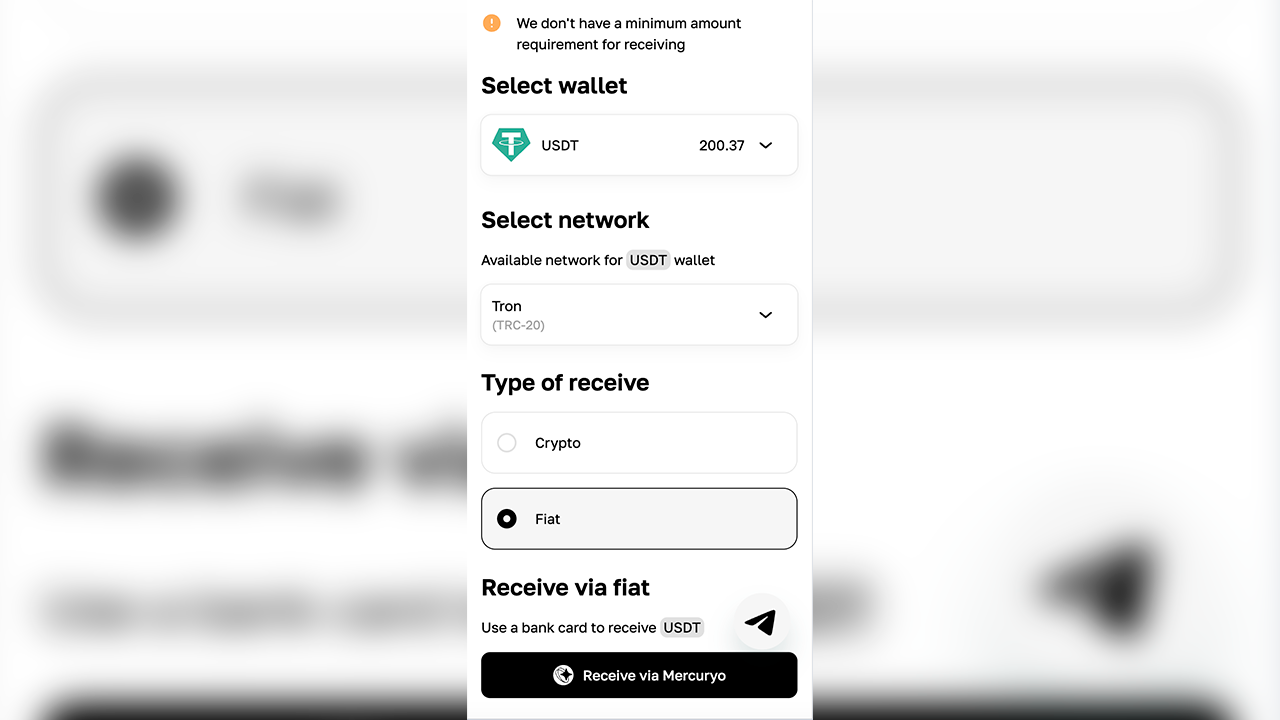
- Step 4: Click on “Receive via Mercuryo” and fill in the gap with the amount you’re going to pay in the preferred currency. The receiving amount of crypto will be automatically calculated in the payment form.
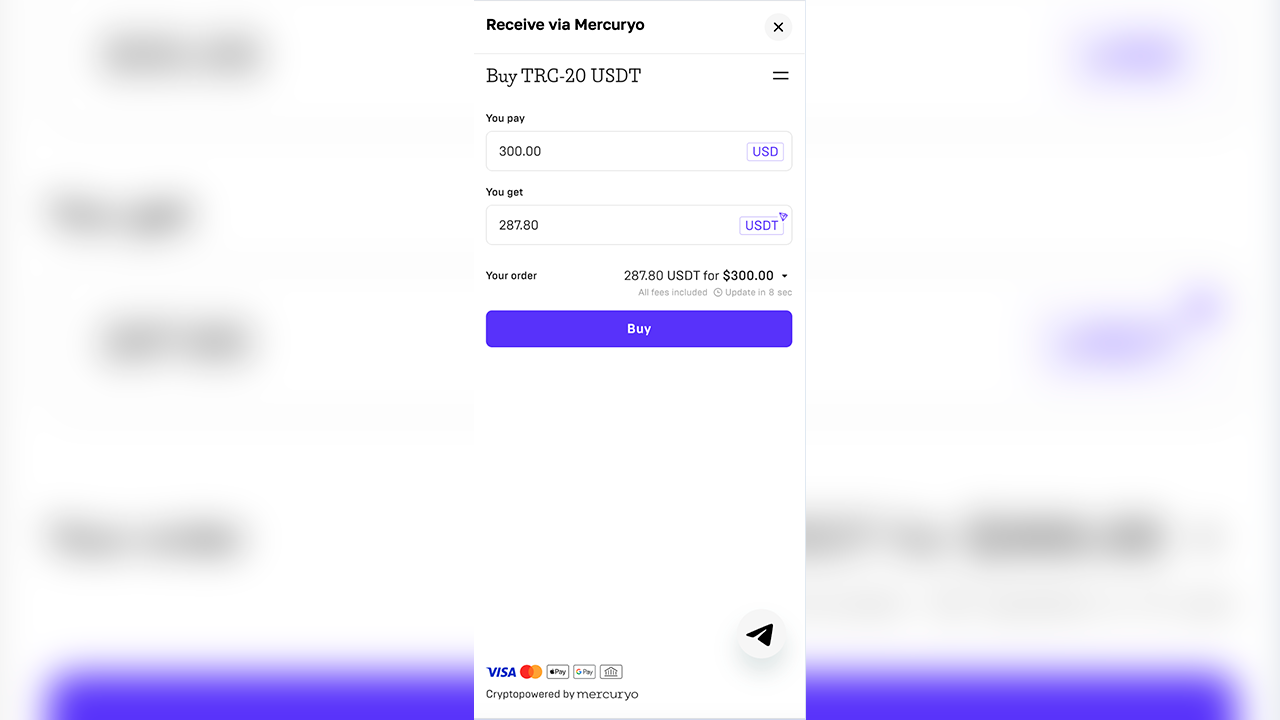
- Step 5: Next, fill in your email address for getting a verification code, and enter your debit or credit card details to make a purchase. Then confirm the action.
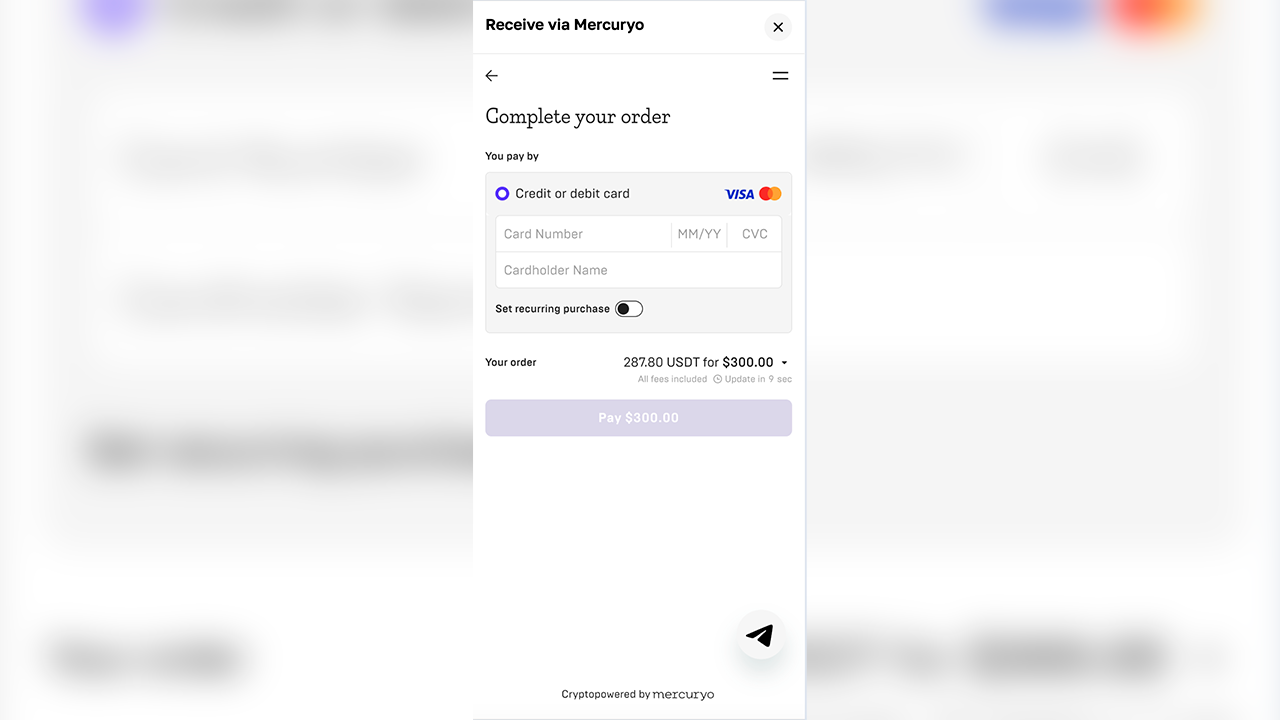
Well done! You’ve just bought cryptocurrency with a card without any complications. The funds will be credited to your personal wallet soon!
Do You Have to Pay Taxes on Cryptocurrency Investments?
As we mentioned before, crypto is taxable in Japan, but just buying it doesn't obligate you to pay anything. The National Tax Agency (NTA) considers crypto an asset, so income from its sale or exchange is considered miscellaneous income (雑所得). This means that if you bought Bitcoin or other crypto and then sold it for more or exchanged it for another coin, the difference in price is considered profit, and you need to pay tax on it.
Taxes arise not only when selling for yen, but also when:
-
exchanging one crypto for another,
-
paying for goods with crypto,
-
receiving rewards from mining, staking, or airdrops.
For individuals, there is a progressive scale — the higher the income, the higher the rate (up to ~55%, including local taxes). For companies, this is included in corporate tax.
Profit is calculated in yen at the market rate at the time of the transaction. Even if you use a foreign exchange, you still need to report in Japan. At the end of the year, you need to file a tax return (確定申告) and indicate the total profit. So, keep a history of transactions and exchange rates — this will help you correctly calculate the tax.
Did you find this article useful? Did we answer all of your questions? Let us know in the comments below!
Simplify Your Crypto Journey
Want to store, send, accept, stake, or trade cryptocurrencies? With Cryptomus it's all possible — sign up and manage your cryptocurrency funds with our handy tools.
Get Started








